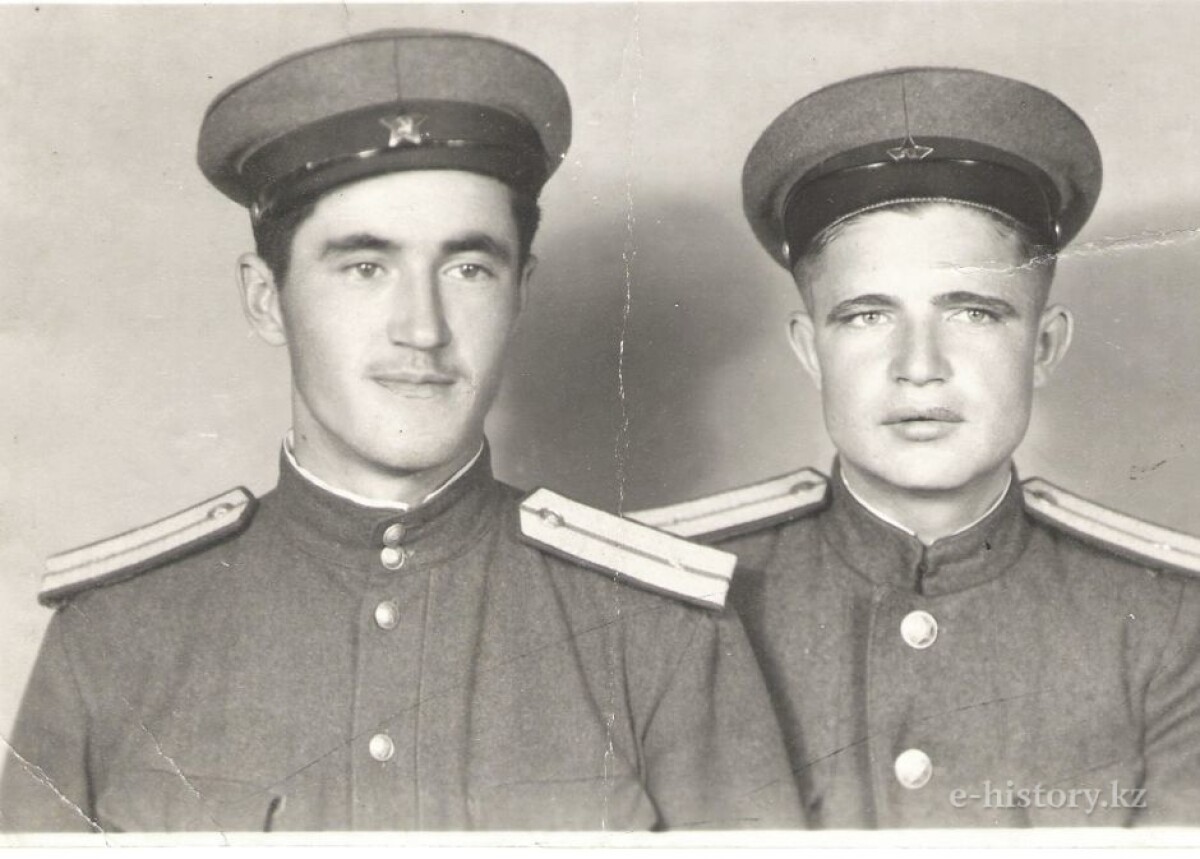
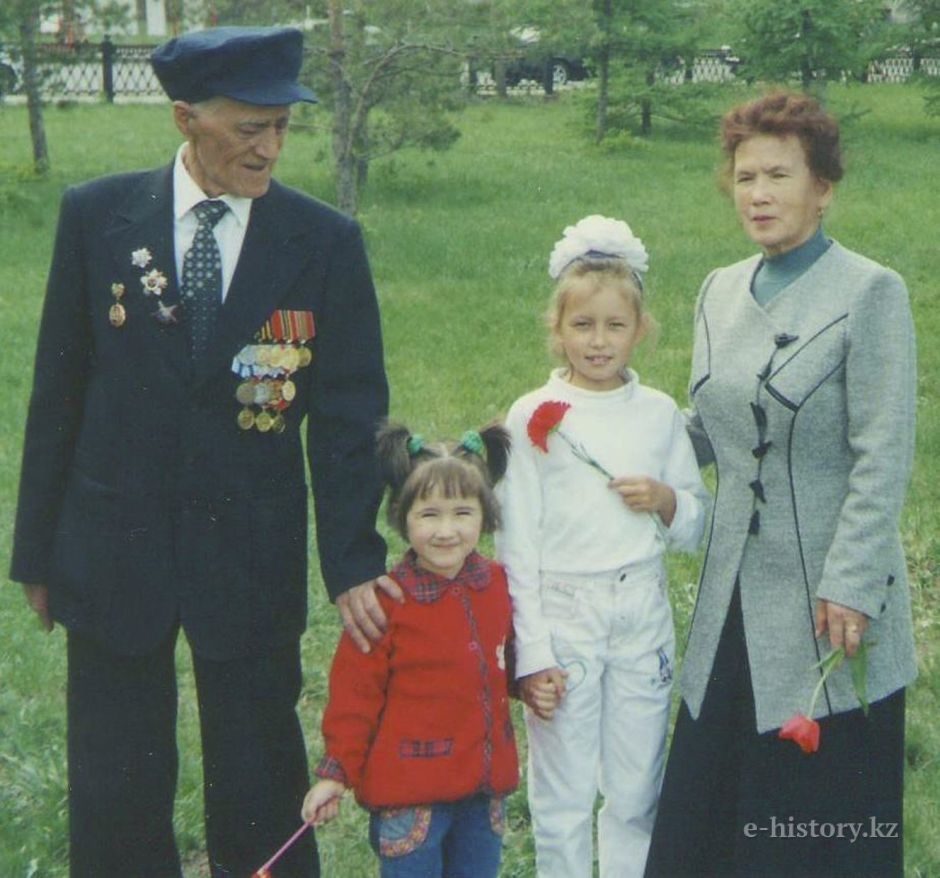
Gabdallah Zaripov with his wife and granddauthers, May 9, 2000
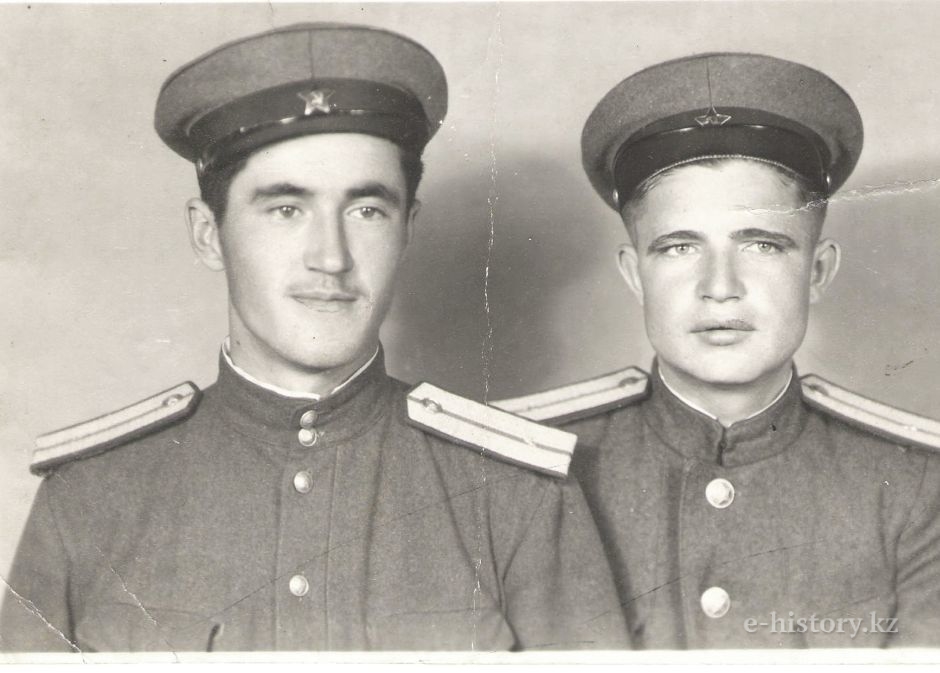
I remember how my grandfather with trembling voice told how difficult it was at the front in those years. And he could never finish singing the song "Beats in small stove fire" till the end because tears always came to his eyes. My grandfather Gabdullah Zaripov went voluntarily to the front once he reached 17 years. On August 27, 1941 he was sent to Alma-Ata High Infantry School of the Central Asian Military District. At the end of the accelerated six-month courses in February 15, 1942 was sent to the south-western front by the commander of artillery department of calculation 7th Infantry Regiment of 24th shooting division.
He received the first baptism of fire in the cruel fights which took place on the right coast of the Northern Donets in the Kharkov area, in the same 1942. Our troops released more than 400 settlements of Ukraine. They brought significant losses to the enemies that opened possibility of further approach to Kharkov and Dnepropetrovsk.
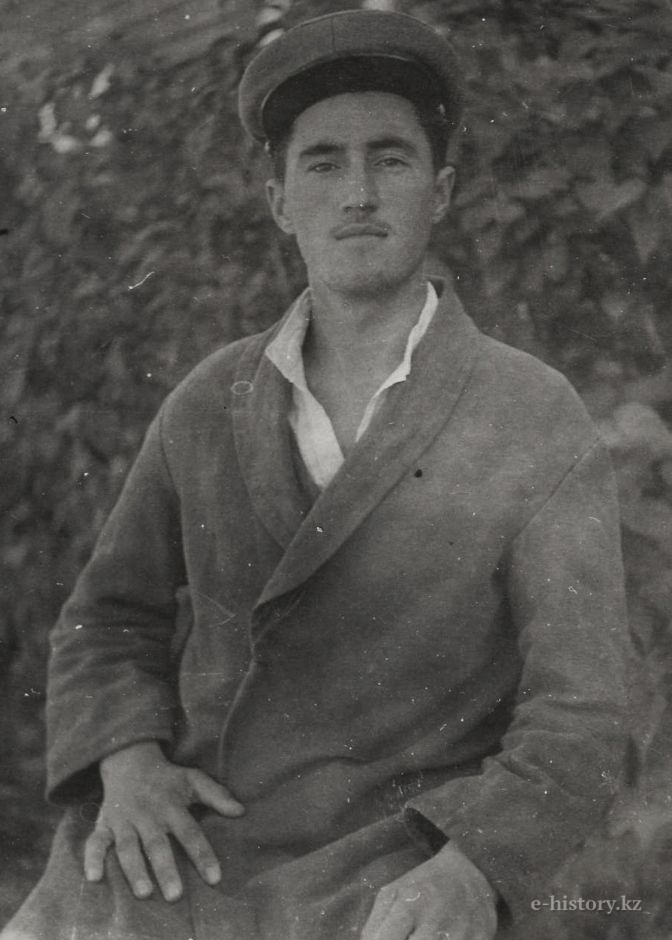
In the battle, at the end of May, 1942 known developed as fight near Kharkov, troops of the front suffered heavy losses. The remains of parts of the Soviet Army with assistance of the summary tank group consisting of the remains of armored brigades and cases with huge losses managed to break to the near the village of Lozovenka. Near Kirovograd my grandfather was injured for the first time in the left hand.
In October — December, 1943 as a part of troops he participated in fight for Dnieper. He told that the artillery was necessary for support of infantry on the opposite coast. For this purpose soldiers connected rafts from logs, loaded on them guns and under the opponent’s fire, pushing them before themselves, transported them on other coast. In these fights he got the second wound. Fight for Dnieper was the next great defeat of forces of Wehrmacht. Liberation of Kiev, the capital of Ukraine, had great political and moral value. The most important industrial regions of Donbass and the metallurgical centers of the southern Ukraine were released.
On April 5, 1945 the Soviet troops started fights on the southern and southeast approaches to Vienna. The city and approaches to it were prepared for defense in advance. Almost all stone buildings were adapted for long defense: in windows, cellars, on attics weapon emplacements were equipped. All bridges were mined. For every quarter, it is frequent and for certain houses there were cruel fights.
According to stories of my grandfather, in a rank of the second lieutenant he ordered an artillery platoon. For many years continuous fights soldiers and commanders accumulated experience and became experts of artillery craft. To prevent large destructions of houses, gunners from long distance precisely suppressed the weapon emplacements established on attics and windows of buildings. In these fights shortly before the end of the war my grandfather got the third wound. For shown courage he was awarded with the medal "For a Capture of Vienna".
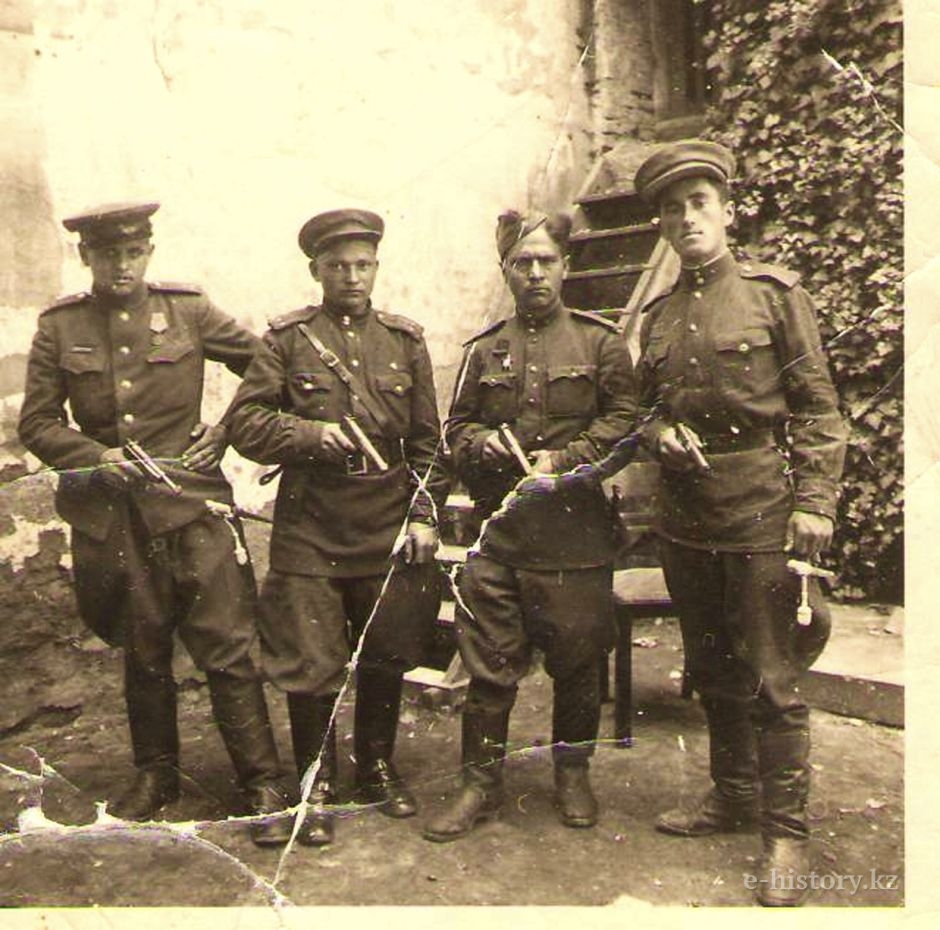
After hospital in days of the Great Victory he was sent to military commandant’s office of the city of Budapest in the Budafok district. One of the most beautiful European capitals reminded a cemetery. Everything seemed the dead: transport did not work, people was invisible. Part of inhabitants did not manage to return from evacuation, someone was lost, someone continued to sit in shelters, being afraid to come to light. Over ruins and the ashes with hoarse croak packs of the grown fat crows were turned.
In 1945 in each of city and suburbs soon after liberation of Budapest regional military of commandant’s office which structure, included officers the sergeants and soldiers who were taking part in fights, were created. They saw sufferings of Soviet people, many of them last family because of fascist monsters.
It seemed that, having come to others, being at war against us country, they will consider each person the enemy. On the contrary, most of fighters understood the grief of residents of destroyed Budapest, and all tried to help Hungarians.
The war finished, everyone wanted to return back home, to relative and begin peaceful life. In the released cities remaining fascists, local bandits were active. They plundered people, got into houses, attacked transport with things and products. To maintain public order commandant’s offices worked without rest.
For example, summer of 1946 was extremely hot and dry. In one of the Sundays the fire at Budafoks paper-mill began. The spark from the engine passing by got to the bales of paper waste. There was nobody except the watchman. The patrol of commandant’s office during round by first noticed fire and immediately told to the person on duty. The major Senkevich — the commandant of Budafoka, collected all solders among whom was my grandfather Gabdullah Zaripov.
Officers, headed small groups of soldiers and sergeants, started extinguishing fire. Other soldiers poured water on roof and walls of the building. Arrived firefighters needed only to extinguish the smoldering bales. The equipment of factory and finished goods were rescued. Dirty, smoked, in wet clothes and in some places burned regimentals, extremely tried, but happy from executed duty. Locals met them by greetings, waving hand and saying: "Thanks, friends!"
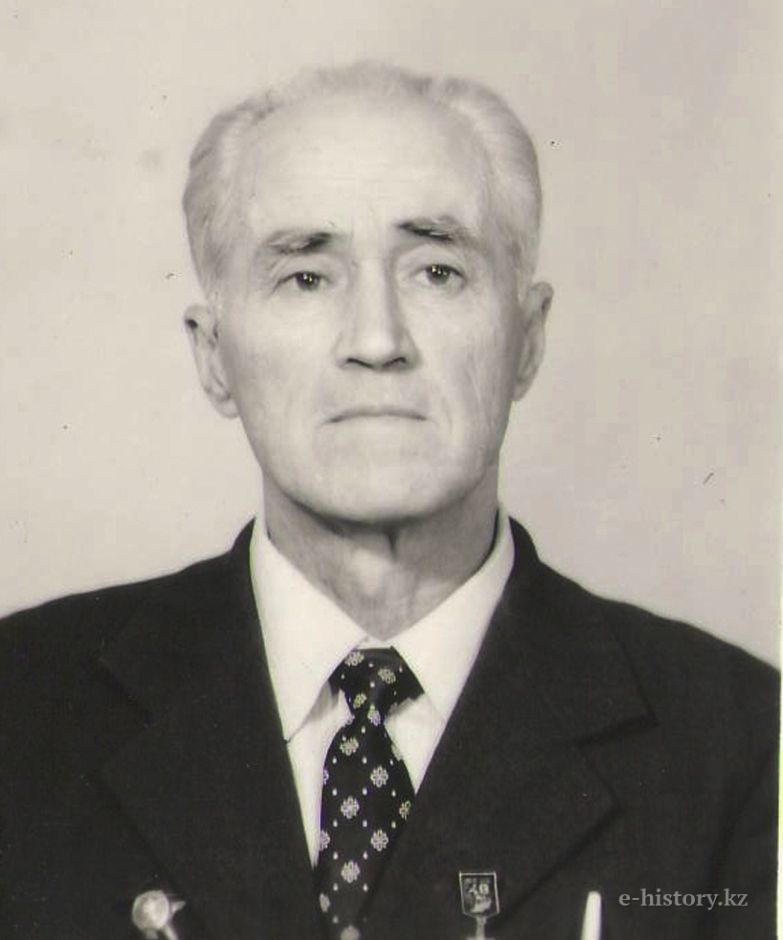
For heroism shown in military operations, my grandfather was awarded by awards of "Patriotic War" and "Red Star", also medals "For Services in Battle", "For a Capture of Vienna" and "For a Victory over Germany".
My grandfather died ten years ago, three months before 60th anniversary of the Great Victory. At that time I was 7 years old and did not understand many things. Thus, all details from the stories of my grandfather explained were explained by my father. In my memory and heart he forever remains my Hero. I am proud that my grandparents fought for peace for their descendants.
Dilayra Zaripova
Pupil of 11th grade of gymnasium "Daryn"
Petropavlovsk, North Kazakhstan region
